EATPIA
来月でビストロ・コティディアンがオープンして10年になりますが、振り返ってみて何を思い出しますか?
須藤亮祐シェフ
いろいろな事がありましたが、やはり思い出すのはオープンした10年前のことです。
2011年の2月22日にオープンしたのですが、その5日前に父が亡くなり、長男なのでお通夜、葬儀などを取り仕切って、その後には四十九日などが続きました。実は、大変だったということだけで、詳しくは思い出せないんです。
そう言えば、オープンの2日前に身内や、お世話になった方を招いてレセプションをやる予定だったのですが、キャンセルしたのを思い出しました。
EATPIA
大変でしたね…
須藤亮祐シェフ
何とかオープンして最初は良かったんです。独立前に働いていた店に食べに来てくれていた人や、料理人仲間が来てくれたので忙しくしていました。
そのオープン景気のようなものが少し落ち着いてきた頃に起きたのが震災です。それから予約帳は真っ白です。
自分の長所はプラス思考
EATPIA
ご不幸があり、その後には震災が続いたわけですが、そんなオープン前後の状況をどうやって乗り切ったのでしょうか?
須藤亮祐シェフ
独立して自分の店を開くということは一世一代の大勝負だったのですが、いきなり危機的な状態に直面して、アドレナリンが噴出したのか、勝手に頭の中がプラス思考に変わりました。自分に長所があるとすれば、それはプラス思考かもしれません。
EATPIA
何年か前に当時の話を聞いた際に、シェフが「運が良かった」と言っていたのを思い出しました。もしかしたら物事をプラス思考でとらえると運がやって来るのかもしれませんね。
須藤亮祐シェフ
そうなんです。震災の後に、同じビルの下にあるル・ポミエ(パティスリー)のオーナーのフレデリック・マドレーヌ・シェフが自分のスタッフ全員を連れて食べに来てくれました。
その後に、マドレーヌ・シェフが何年もかけて貯めた300人ほどのメディア関係者のリストをもって来て「マドレーヌから紹介されたと書いて、全員に連絡してみたらどうだ…」と言ってくれたんです。
EATPIA
そうしたら…
須藤亮祐シェフ
リストにあった全ての人に手書きで挨拶状を送りました。そうしたら沢山の雑誌が取り上げてくれて、それから3年近くは満席状態が続きました。
でも全員で早朝から深夜まで働いて、気持ちに余裕がなくなってしまい…その頃のスタッフには本当に迷惑をかけました。殆どのスタッフが前の職場からついて来てくれた仲間や知り合いでした。
人に恵まれ
人に助けられ
EATPIA
でも少しイカれたサービスの方もいましたよね?
須藤亮祐シェフ
そうなんです。自分がフランス人だと思い込んでたみたいで…変な人でした。でも1年と少しで辞めてくれたのでホッとしました。
後任を探すのに苦戦していたら、何の経験もない妻が「これじゃ誰か見つけるより、私がソムリエになった方が早い!」と言いだして…それから毎朝6時から9時までワインの勉強をして、ランチとディナーの間の休憩時間も、そして早起きして書き留めたノートに掃除機をかけながら目を通していました。
そうやってソムリエの資格を取った後には、チーズ・プロフェッショナルの資格も取ってくれました。
コティディアンのホールは妻が守ってくれたと言っても言い過ぎではありません。
自分でリスクと
責任を負うからには…
須藤亮祐シェフ
自分のビストロを開くに際して借金をしたり、少人数ではありますがスタッフを雇ったりして大きなプレッシャーがありました。でも自分が責任やリスクを負うなら、好きなことをやろうと最初のころから思っていました。つくりたい料理をつくるということです。
店を維持する為や、少しでも多くの人に来てもらう為に、我慢したり、妥協したりすることが時には必要なのかもしれませんが、そうしないで今までやってこれました。
ここまで来れたのは流行り廃りとは縁のない王道のビストロ料理だけをつくってきたからだと思っています。白い皿にシンプルに盛り付ける料理です。料理だけでなく、洋服などもシンプルなものが好きなんです。
EATPIA
確かに須藤シェフの料理にはブレがないですよね。でも王道のビストロ料理は最初から受け入れてもらえたのでしょうか?
須藤亮祐シェフ
メディアで紹介されて多くの人が来てくれるようになったのですが、振り返ってみると、少し言い方が悪いかもしれませんが、雑誌で紹介されていたから来てみた、といった感じの人が多かったと思います。必ずしもビストロ料理が好きなわけでも、ましてや自分の料理に魅力を感じて来てくれたわけでもありません。
当時は綺麗に盛り付けられた料理が何皿もでてくるコースが流行り始めたころだったので、自分で言うのもなんですが、インスタ映えしないシンプルな料理に期待外れだと思った人も少なくなかったと思います。
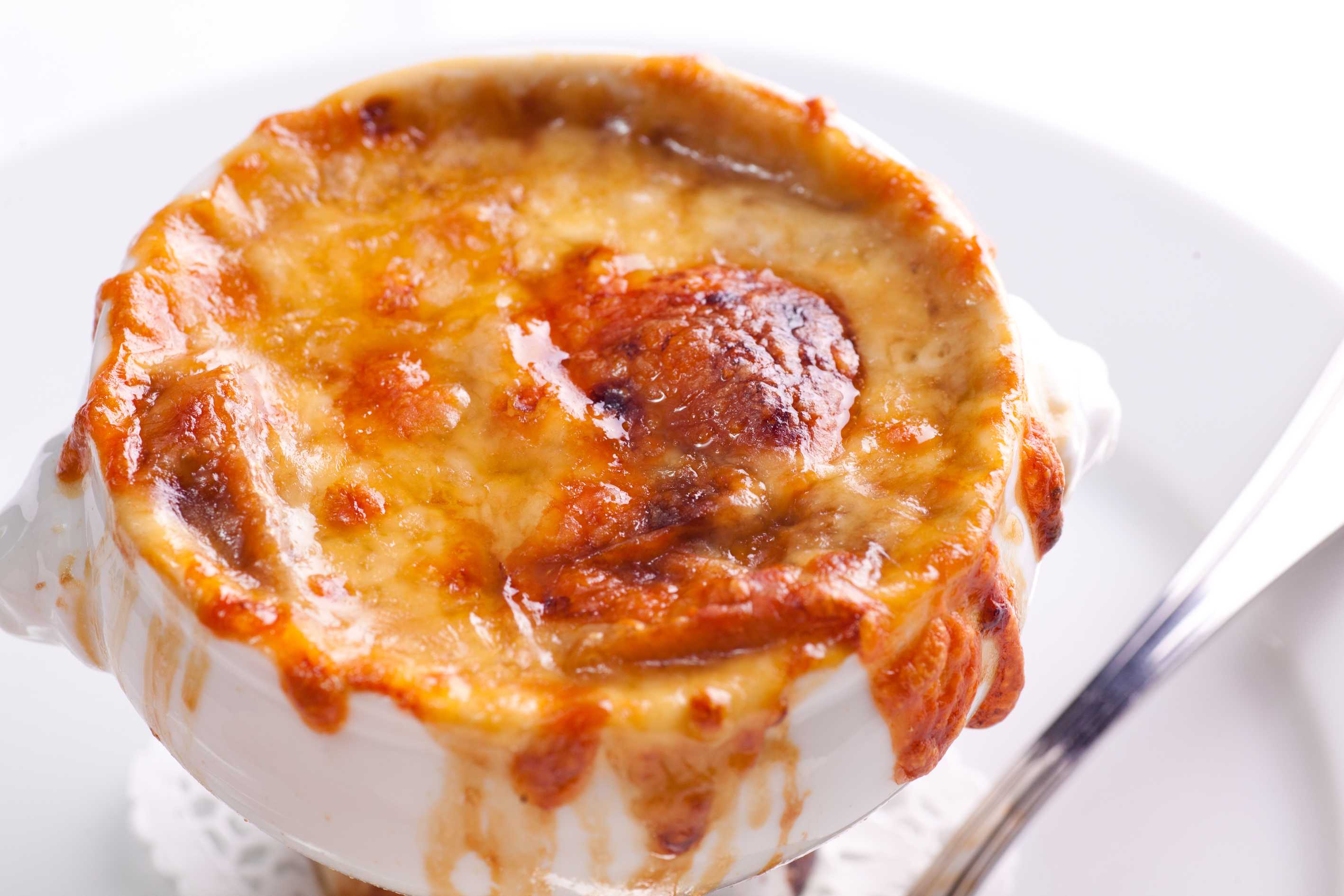
オニオン グラタン スープ
Onion Gratin Soup
EATPIA
それでもスタイルを変えなかったわけですね?
須藤亮祐シェフ
最初は自分の料理がシェアされることに違和感がありました。だからプリフィックスで料理を提供していました。でもシェアされるのが嫌だったわけではないんです。嫌だったのはシェアのされた方です。ここは大騒ぎをしたり、料理を食べ散らかしたりする店ではなく、しっかりとワインを飲んで食事を楽しんでもらうためのビストロなので、その空気感のようなものは守ろうと思っていました。
本当のファンは裏切らない
EATPIA
ビストロ・コティディアンにはビストロ信者みたいなコアな人が通っているような印象があるのですが…?
須藤亮祐シェフ
オープンしてから6年くらい経って本当にビストロの楽しみ方を知っている人が集まってくれるようになりました。なので夜はアラカルトでも料理を楽しんでもらえるようにしました。
今はコロナで無理ですが、以前は必ず毎年フランスに行ってビストロ巡りをしてくるような人が何人もいて、帰ってくると土産話をしに来てくれたりするんです。本当にビストロが好きな人は裏切らないですね。
そういった人は強めの塩がアクセントとして効いた味わいが好きみたいです。
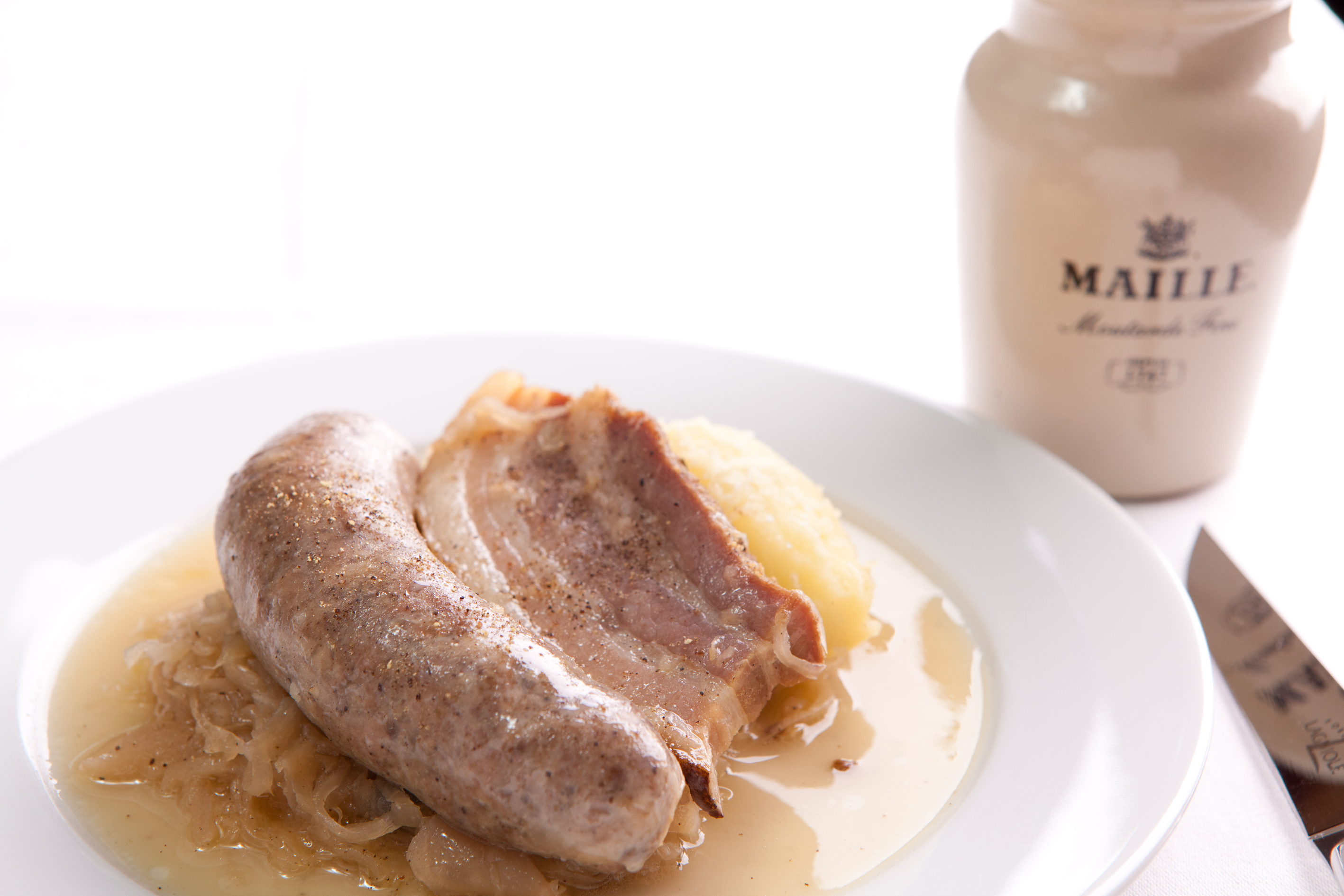
Sauerkraut with Homemade Sausage & Bacon
岩中豚で作った自家製ソーセージと
ベーコンのシュークルート
EATPIA
因みに、EATPIAに載っている文章の中には「典型的なビストロ料理にはない洗練された何かがある」と書かれているのですが、その説明が間違っていないとしたら、フランスで5年間もミシュランの2星や3星のレストランで働いた経験が関係しているのでしょうか?
須藤亮祐シェフ
自分では洗練されたとは思っていませんが、ビストロでも美味しいものをつくる為には、しっかりした技術が必要で、時間をかけて仕込んで、丁寧に仕上げていかなければいけません。これは街角のビストロでも、ミシュランの星付きでも変わらないはずです。
EATPIA
パリや南仏にある星付きのレストランで働きながらビストロの何に魅力を感じたのでしょうか?
須藤亮祐シェフ
やはりビストロは堅苦しくなく気軽に行けるということです。カチッとスーツを着てネクタイを締めてレストランに行きたいと思う時もあるけど、毎日そうは思わないですよね。何よりもビストロでは普段着で美味しい料理をガッツリ食べられるのが魅力です。
ビストロという
単語の意味合い
EATPIA
確かにカジュアルに美味しい料理を食べてフランスを感じられるのがビストロの魅力だと思うのですが、少しビストロという言葉の意味合いが軽くなってきたように思いませんか?
須藤亮祐シェフ
そうなんです。ビストロなのにメニューにパスタがあったり…写真で見るとスタッフが賄いで食べてるようなレベルのものです。
安いワインをこぼれるほど注いだり…。それは自分にとってのビストロとは全くの別物です。
EATPIA
その一方で、本物のビストロ料理を求めている人もたくさんいます。ビストロ・コティディアンでは緊急事態宣言が出された後、須藤シェフのカスレやパテなどをテイク・アウトする人がかなりいたと聞きました。何か特に記憶に残っていることはありませんか?
須藤亮祐シェフ
テイク・アウトをやって本当に良かったです。麻布十番は昔から住んでいる人もいれば、引っ越してきた人もいる。そういった地元の人たちがテイク・アウトを利用してくれました。さらに地元の人だけでななく、車でくる人も多く、まとめてカスレやパテを買っていってくれました。
でも常連の人が来てくれても全て売り切れだったことが何度かあり、迷惑をかけてしまいました。大家さんも週に何回もテイク・アウトを利用してくれて…たくさんの人に助けてもらいました。
「あまり外出できないから、美味しいのを食べるのが唯一の楽しみ…」といった声をかけてもらえたので、多少なりとも日々の生活に貢献できたのかもしれません。
次のステップ
新しい10年に向けて
EATPIA
10周年の次には何があるのでしょうか?
須藤亮祐シェフ
ビストロ・コティディアンの営業は2月末で一区切りとなります。
横浜で育って、料理人を志して、いつか東京で店を開こうと思っていました。実際にビストロ・コティディアンをオープンした頃は、少なくとも20年は自分の店をやるつもりでした。そうすればレジェンドと呼ばれるようなベテランのシェフに少しは近づけるのではないかと思っていたのですが、環境が変わり、自分の価値観のようなものも変わってきました。特に父親になったのは大きいです。
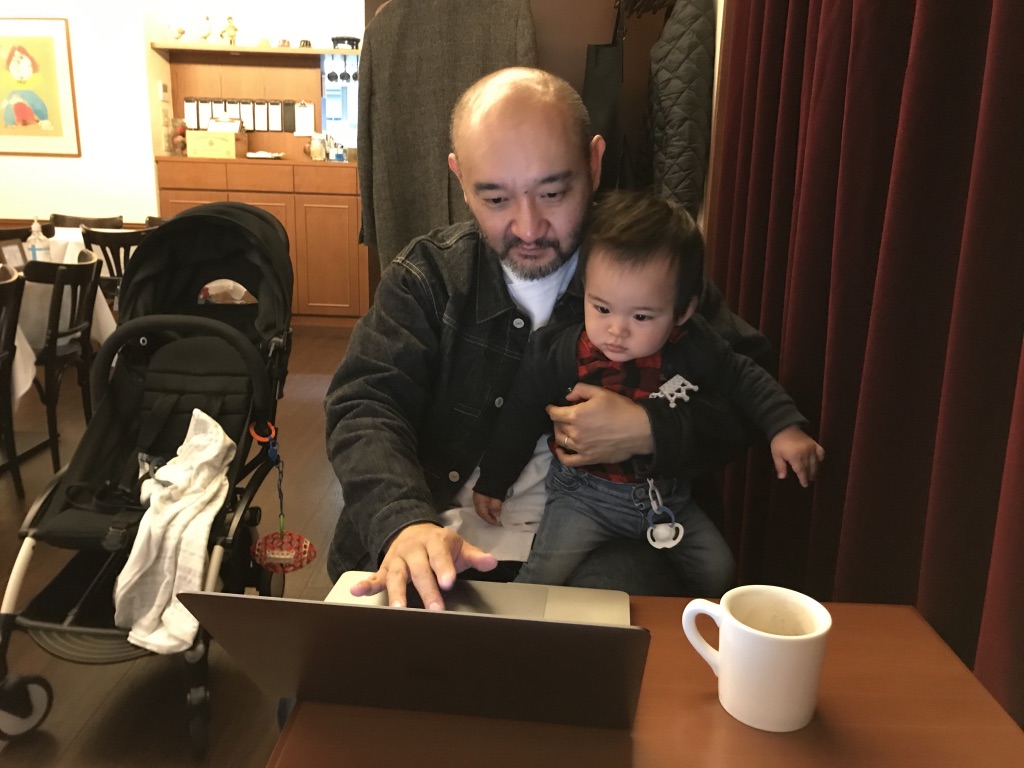
Photo by EATPIA
次のステップとして、妻の実家のある御殿場に移り、大家族で子供を育てながら、妻の祖父母が経営していたレストランを引き継いで活動を再開しようと思っています。
生産者の近くで料理をつくり、自分でも野菜を育ててみたりしながら、料理人として新しいことにもチャレンジしていければと思っています。

須藤シェフ「ビストロ・コティディアン」に関しての詳細は以下のリンク先で見ていただけます。
https://www.eatpia.com/restaurant/bistrot-quotidien-azabu-juban-french

他のインタビューは以下のリンク先で見ていただけます。
EATPIA:
February (2021) marks the 10th anniversary of Bistrot Quotidien. What would you say has been the most memorable occurrence in that time?
Chef Ryosuke Sudo:
I have so many memories. But the most memorable by far, is the week right before our opening day on the 22nd of February. Five days before my father passed away. It was a terrible thing to happen anytime, but in the same week as opening my first restaurant, unbelievable. On top of that, I am the oldest son, and it was my responsibility to organize all the funeral related ceremonies.
Actually, it’s all a bit of a blur now, but the main thing I remember is that I was extremely busy. I do recall having to cancel a reception that was scheduled two days before the opening, but that’s it.
However, once we opened things went well. Friends, and other chefs I’d worked with in the past came along to support us in the opening weeks. But in less than a month, the 2011 earthquake and tsunami struck Japan, and our reservation book went completely blank.
Positive State of Mind
EATPIA:
So you lost your father, and were hit with a national disaster in a span of less than a month? How did you come through?
Chef Ryosuke Sudo:
I knew opening my own restaurant was going to be the biggest endeavor of my life. Then, all of this! The only thing I could do was to look for any positives I could find, and not dwell on the negatives. I think that is where the adrenaline kicked in and took over.
EATPIA:
We’ve talked before about how you survived the 2011 disaster, and I remember you simply answering by saying, “I was very lucky.” Do you think luck often turns up when we have a positive state of mind?
Chef Ryosuke Sudo:
I think so.
On the first floor of the same building is a French cake shop called, Le Pommier. It’s owned by Chef Frédéric Madeleine, and after the earthquake, Chef Madeleine brought his entire staff to our restaurant for dinner.
A couple of days later he kindly came back with a 300 name list of his media contacts. He told me to contact them right away, and suggested that I take advantage of his name. So I sent out handwritten letters to all of them.
This generated enough publicity to keep the bistro busy for almost the next three years.
However, I wasn’t well prepared for success. We all had to work from early morning, through until late at night. Now I really regret putting my staff through those extremely long days.
Blessed with People
Supported by People
EATPIA:
Talking about staff, have you had any issues with them?
Chef Ryosuke Sudo:
Yes. I’ve had one staff member who became a bit of a problem.
After he left, we had a hard time filling his role as a sommelier. Then my wife suggested that she could do it. She took it very seriously, and began studying wine every day, beginning from the early hours, throughout her lunch, and dinner hours too. She even studied while going about her daily chores, and it paid off!
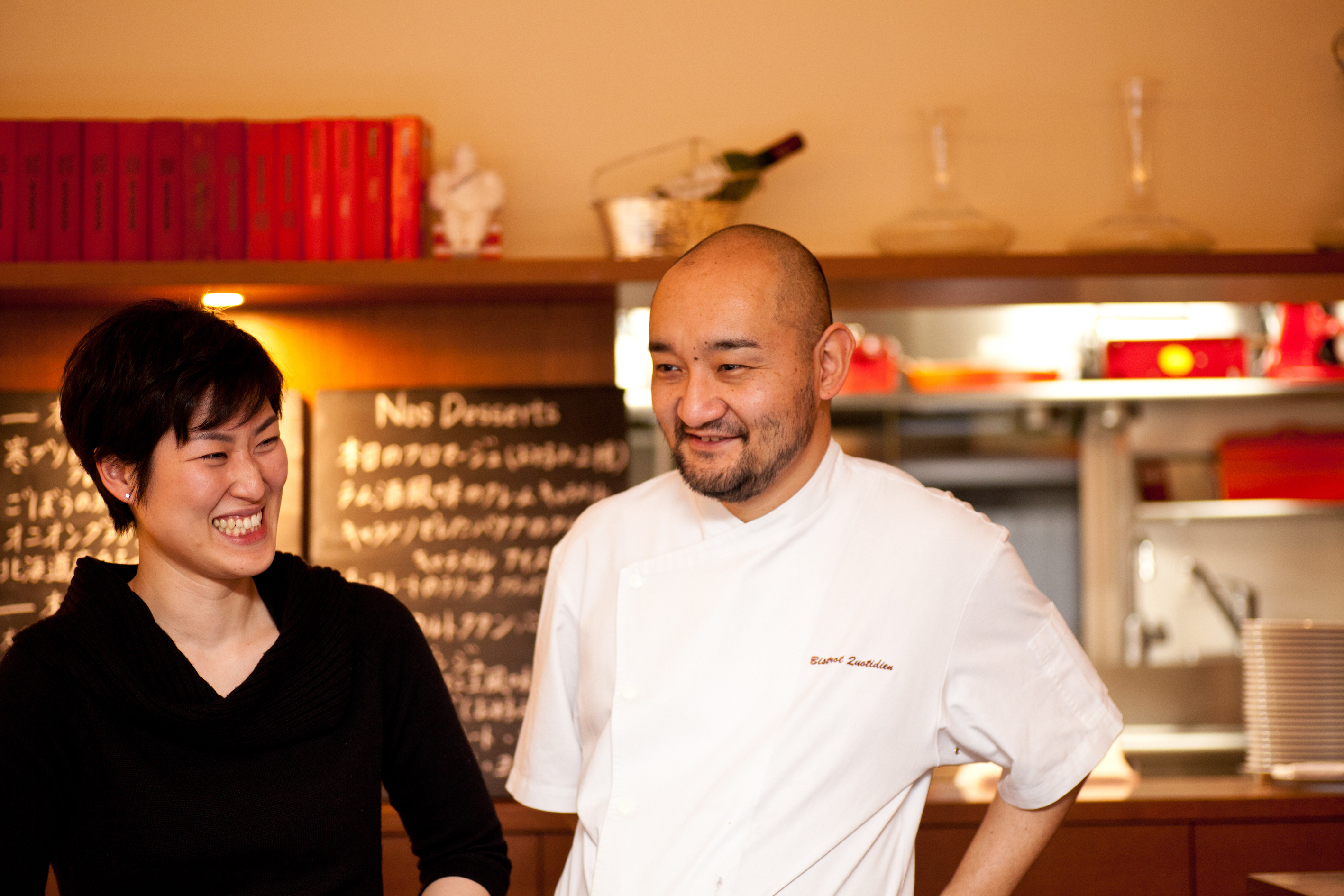
She is now not only a certified sommelier, but also a licensed cheese professional.
I cannot thank her enough for what she has done to keep this place going.
Taking Risks
and Responsibilities…
Chef Ryosuke Sudo:
Opening a restaurant requires borrowing large amounts of money, and hiring staff to help you run it. It is a huge amount of pressure. However, because of all that risk and responsibility, I wanted to make the place my own, and cook food that I am passionate about.
I feel there are many chefs out there cooking dishes to simply keep their restaurants open, or to attract more customers. I’ve been very fortunate that I’ve never had to compromise my passion. I’ve been cooking nothing but authentic bistro fare which sits outside of the boom and bust cycles.
It’s simple food, served on plain white plates. I guess I’m attracted to simple things, even down to what I wear.
EATPIA:
Has cooking authentic bistro dishes always been popular with diners?
Chef Ryosuke Sudo:
With the initial media exposure I spoke about earlier, a lot of people came because of those magazine articles and write-ups, having nothing to do with liking bistro cuisine. I don’t think they even knew what we were going to serve them.
Back then, tasting menus were popular. Those menus featured a long list of bite-sized courses all beautifully plated. My dishes are totally opposite. My dishes aren’t as aesthetically pleasing or ideal for social media. I’m sure many diners were disappointed.
EATPIA:
And you didn’t feel any pressure to change your style?
Chef Ryosuke Sudo:
No, not at all. I did noticed that some diners were sharing dishes, which is something I don’t like. I also don’t like people speaking loudly and eating messily. Bistros to me, are a place to enjoy wine and to dine in a relaxed manner, not a place to go crazy. I feel it is my responsibility to set the right atmosphere. Hence why we used to only have a prix fixe menu.
Real Fans Die Hard
EATPIA:
I have an impression that Bistro Quotidien attracts a lot of hard-core bistro-loving Francophiles. Does that sound right?
Chef Ryosuke Sudo:
That’s correct. We do have a lot of hard-core diners like that. Although, it took many years to establish that kind of customer base. Now, we have an a-la-carte dinner menu for them.
Before Covit-19 and the travel restrictions, a lot of my diners that used to visit France frequently, and would come back to Tokyo talking about the bistros they dined at. Those hard-core diners die hard.
They are the ones who prefer boldly salted dishes, rather than lightly seasoned ones.
EATPIA:
In a past write-up on EATPIA about your bistro, it is written that, “Bistro standards such as ‘Fromage de Tête’ and ‘Sauerkraut with Homemade Sausage and Bacon’ are presented with a slight sense of sophistication.” Do you think this is influenced by your experience at the five Michelin multi-starred restaurants you worked at in France?
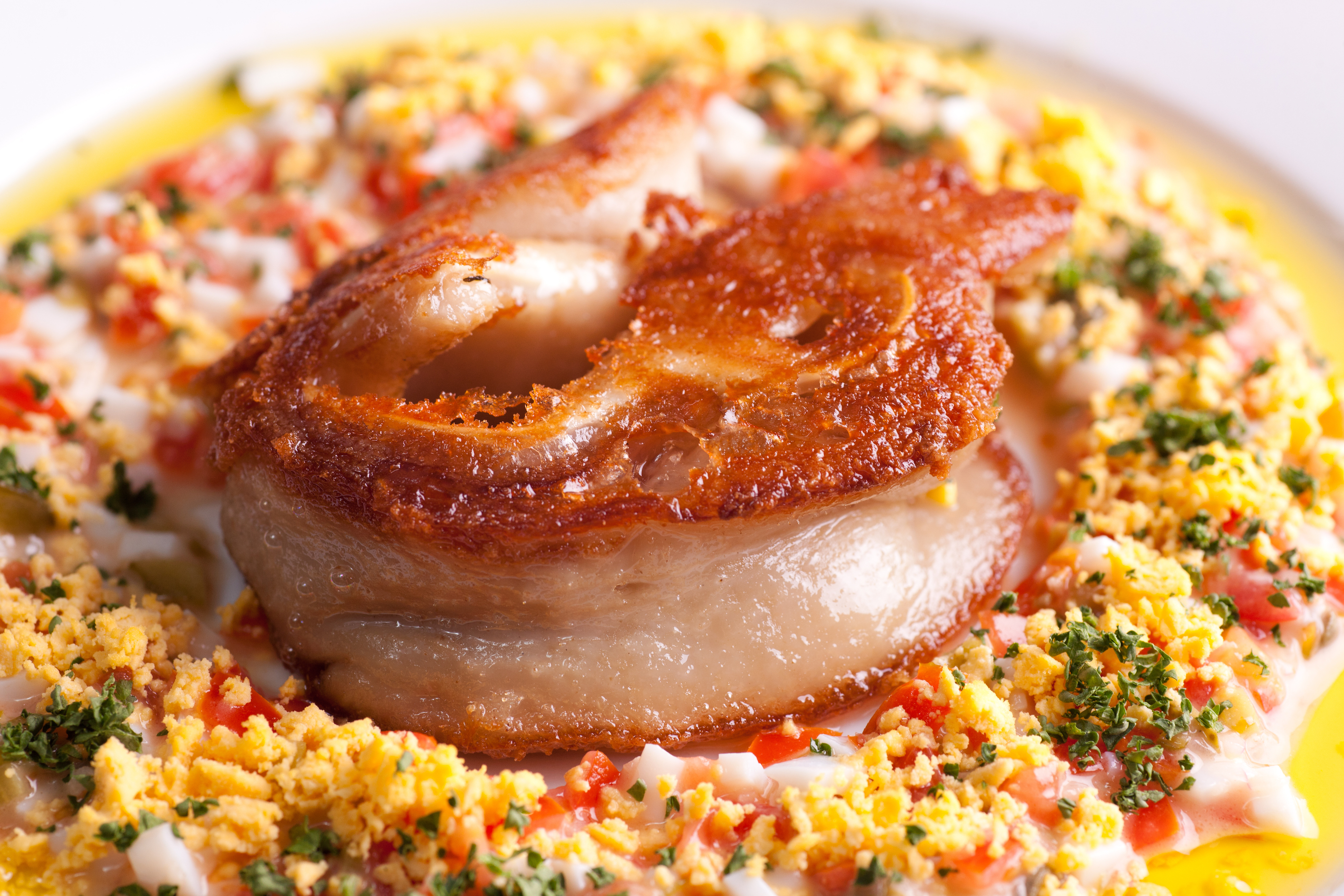
Fromage de Tête
Head Cheese
(Crisply grilled pork head)
フロマージュ・ド・テット
(豚の頭のカリカリ焼き)
ラビゴット・ソース
Chef Ryosuke Sudo:
I’m not sure if they are sophisticated. However, one thing I’m convinced of is that even bisrto fare still takes skill and time to cook. It requires attention to detail. I think, in terms of preparation and actual cooking, it’s no different from gastronomy at Michelin starred restaurants.
EATPIA:
In your five years in Paris and Saint-Tropez. I’m sure you visited many bistros while you were there, what is the attraction to bistros for you?
Chef Ryosuke Sudo:
It’s nice to dine in expensive restaurants dressed up in a proper jacket and tie, but it’s not realistic for daily life. Whereas a bistro is a place you can go to everyday and enjoy a casual hearty meal, without all the stuffiness.
What Does Bistro Mean?
EATPIA:
I agree with you that a bistro is a casual place you can go to and eat unpretentiously. But, is there such a thing as ‘too casual’ in a bistro?
Chef Ryosuke Sudo:
There are some bistros that serve sloppy dishes piled high, that barely look good enough for a staff meal, and they over-pour cheap wines. Their goal is to try to please diners with quantity not with quality.
EATPIA:
There seems to be a lot of people craving authentic bistro fare, to the point that I heard your take-out business during the soft lock-down period was tremendously popular. Would you like to tell us about that?
Chef Ryosuke Sudo:
Yeah, we had a great response. I was glad that I quickly shifted our business to take-out. The neighborhood of Azabu Juban has many people from all corners of Japan and the world, and many took full advantage of the take-out menu. Some of the most popular dishes were cassoulet, and homemade sausage and bacon.
Even my landlord’s family got it a couple of times a week.
Some dishes sold out quickly, which meant that there was barely anything left for the people who eat late.
I was told that popping out to pick-up the take-out was their only form of entertainment during that period. If that’s true, I’m happy to have helped in any way I could.
Next Step
Next Ten Years
EATPIA:
What’s next after the 10th anniversary?
Chef Ryosuke Sudo:
Well, I’ll be closing Bistrot Quotidien at the end of February (2021).
The thing is, I was born in Yokohama and always wanted to have my own restaurant in Tokyo ever since I was an aspiring cuisinier. When I opened this bistro I was determined to keep this place going for 20 years. I thought if I achieved that, I would be one of those legendary chefs in Tokyo, that I still look up to.
However, a lot of things have changed over the years, and the biggest change was when I became a father. It now feels like the right time to move onto the next chapter of my life.
For the next step, we will move to Gotenba, Shizuoka. This is my wife’s hometown. There we will raise my son around her parents, and we will eventually take over a restaurant which her grandmother owned and operated.
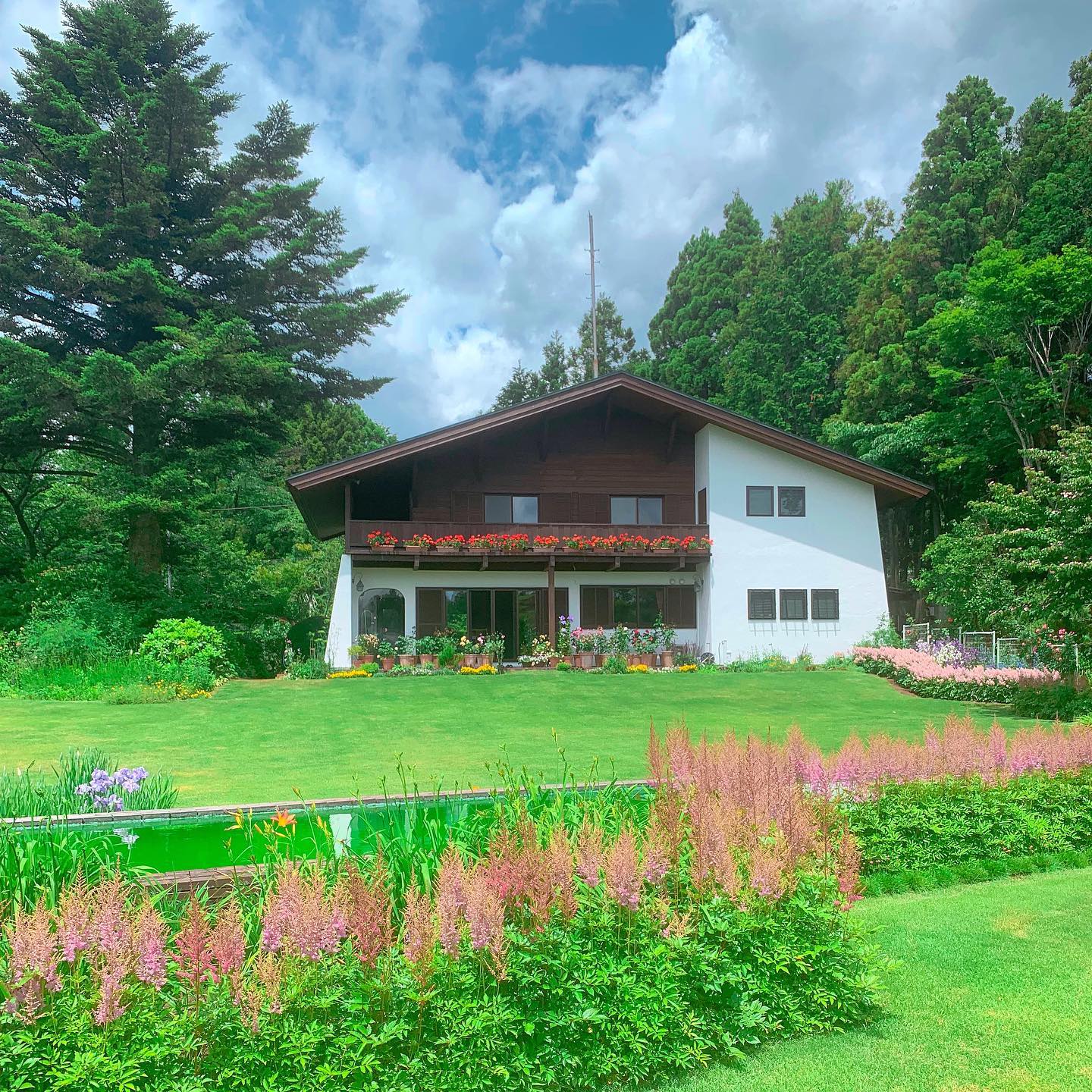
Photo courtesy of Bistrot Quotidien
I plan to cook with local produce, along with growing my own vegetables. I have a lot of ideas I want to try, and I’m looking forward to it.
English text edited by Craig Atkinson.

For more information about Chef Ryosuke Sudo and his Bistrot Quotidien, please follow the links below.
https://www.eatpia.com/restaurant/bistrot-quotidien-azabu-juban-french

Photos by Waki Hamatsu, unless otherwise specified.

If you are interested in reading any of our previous interviews, you can also find them at the link below!













